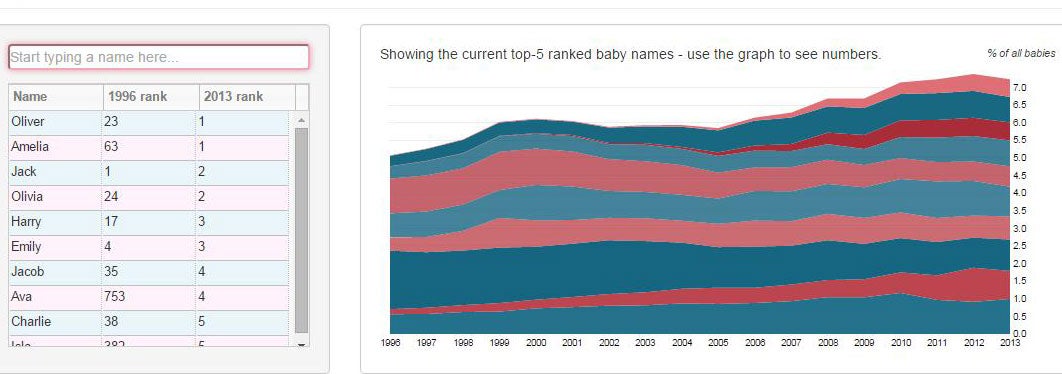Search most popular baby names in England and Wales: Comparison tool shows trends
Some of the names now in the top 10 ranked as low as 753 in 1996

Your support helps us to tell the story
From reproductive rights to climate change to Big Tech, The Independent is on the ground when the story is developing. Whether it's investigating the financials of Elon Musk's pro-Trump PAC or producing our latest documentary, 'The A Word', which shines a light on the American women fighting for reproductive rights, we know how important it is to parse out the facts from the messaging.
At such a critical moment in US history, we need reporters on the ground. Your donation allows us to keep sending journalists to speak to both sides of the story.
The Independent is trusted by Americans across the entire political spectrum. And unlike many other quality news outlets, we choose not to lock Americans out of our reporting and analysis with paywalls. We believe quality journalism should be available to everyone, paid for by those who can afford it.
Your support makes all the difference.Some of the most popular baby names in England and Wales were among the rarest choices less than 20 years ago, new data has revealed.
Oliver and Amelia topped the list for 2014 for the second year in a row, the Office for National Statistics (ONS) announced today.
But other top 10 names, including Ava and Isla were almost unheard of in the UK until a sharp rise in recent years.

A comparison tool developed by Anna Powell-Smith allows users to see changing trends dating back to 1996.
Here is how to use it:
Search for names in the box on the left hand side to view their changing popularity by year and percentage.
To view individual figures, hover over different points on the graph.
The graph updates automatically as you search, so you can try part of a name or the letters it starts with.
For all names starting with a particular letter, write the letter followed by an asterisk e.g. h*. For names ending with a letter, add a dollar sign instead of an asterisk e.g. s$.
- The same technique can be used for several letters rather than just one.
The tool currently uses ONS data from 2013 but is due to be updated with the latest information over the coming 24 hours.
Join our commenting forum
Join thought-provoking conversations, follow other Independent readers and see their replies
Comments